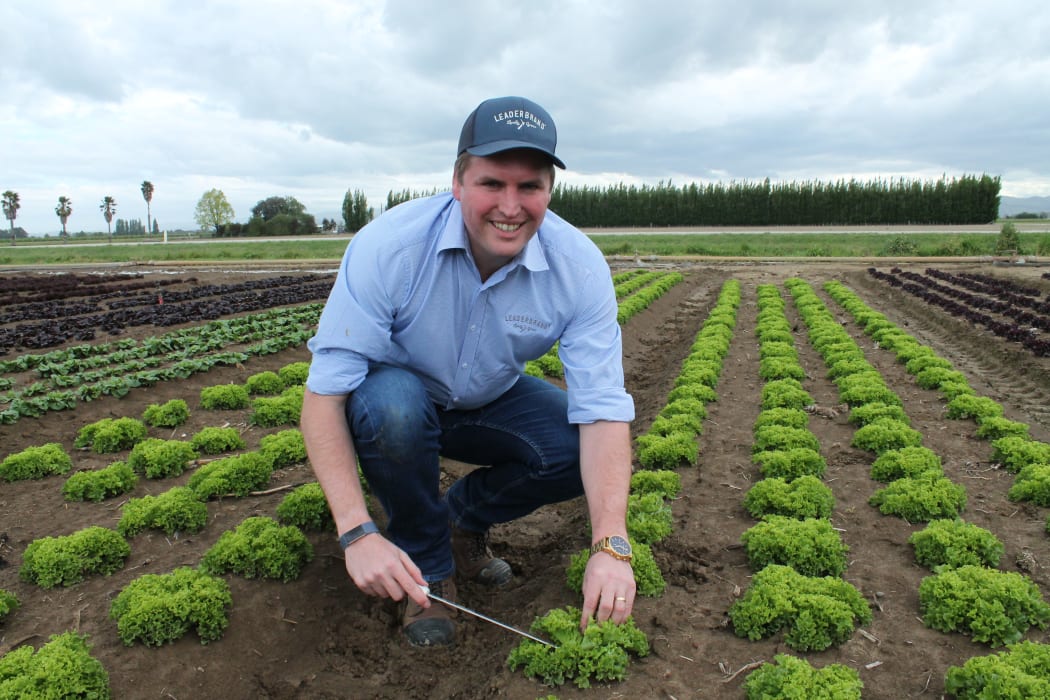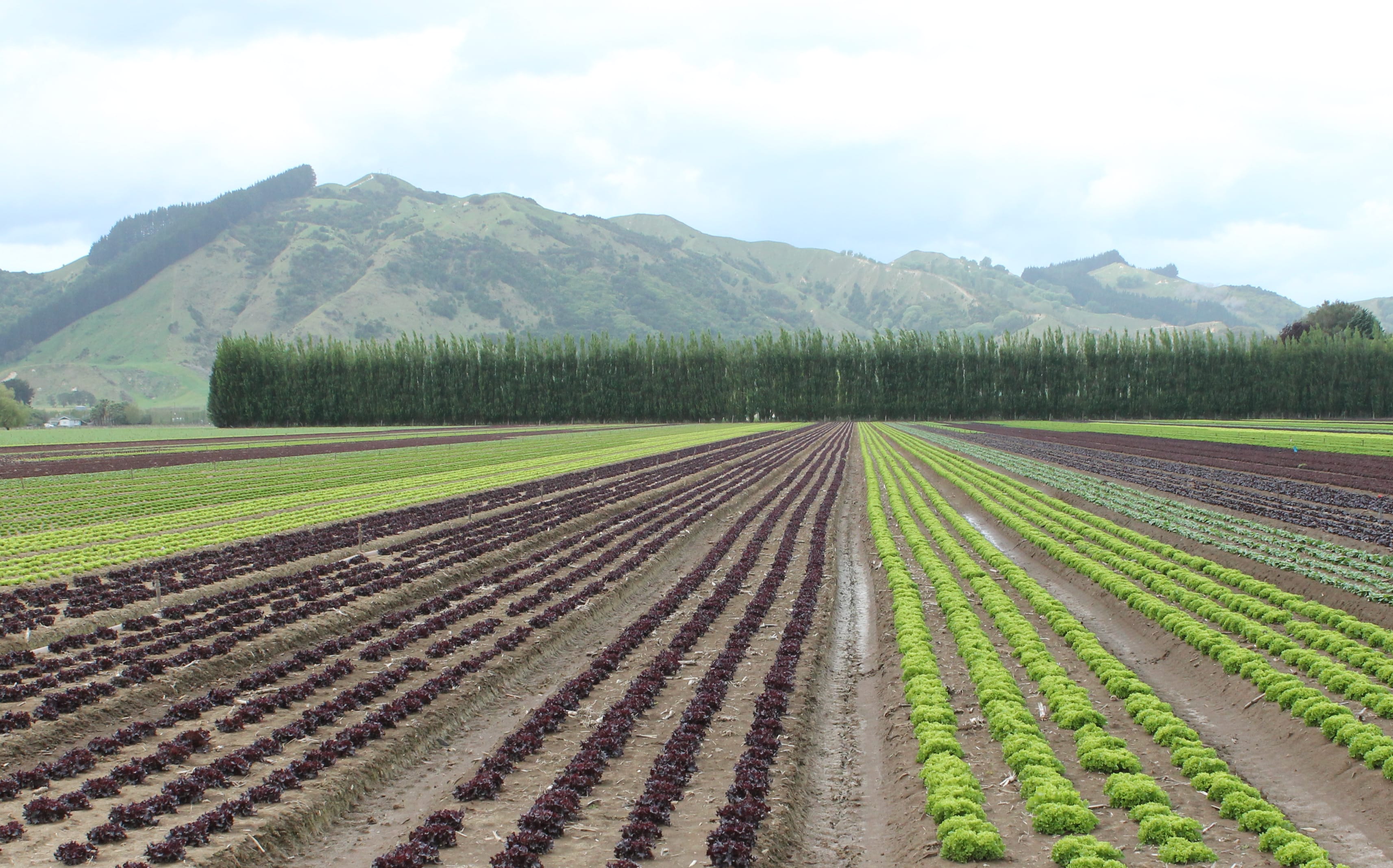
Photo: RNZ/Carol Stiles
One of New Zealand's largest growers of vegetables and salad greens is building an indoor growing facility the size of 15 rugby fields to ensure year-round continuity of supply.
Construction is due to start on Leaderbrand's Gisborne facility this summer.
The company's general manager of processing, Richard McPhail, says even though Leaderbrand produces up to 90,000 bags of salad a day in summer, New Zealand's per capita consumption of bagged salads lags behind consumption in the USA, Australia and the UK.
A lack of reliable supply is partly to blame.
He says New Zealand's cold, wet winters can be a nightmare for salad producers.
"So this year was really tough for us and we have two supply regions and both regions got affected by weather and then diseases and we lost crop."
McPhail says when salads aren't available consumers switch off.
"You lose that market space. Whether you lose the shelf space to a competitor or you lose it to broccoli, cauliflower or some other winter green, once you lose it then you have to buy it back, through promotions or discounts or you have to wait for something else to fall off its perch to get the space back again."

Photo: RNZ/Carol Stiles
So the company plans to shore up its supply by planting some of its salad greens indoors.
"Yes 15 hectares...four walls and a roof."
Salad vegetables will be grown indoors in soil, not hydroponically. McPhail believes that gives them more flavour and stronger leaves which leads to a longer shelf life.
He says the new facility will allow Leaderbrand to meet some of its environmental goals; rainfall will be captured, inputs reduced and growing will become more sustainable.
Three years ago Leaderbrand spent $20 million building a new salad processing facility.
Each each week it puts through 40 tonnes of iceberg lettuce, 20 tonnes of green cabbage, 10 tonnes of red and 30 tonnes of spinach.
Leaderbrand produces about 30 percent of New Zealand's bagged salads.

